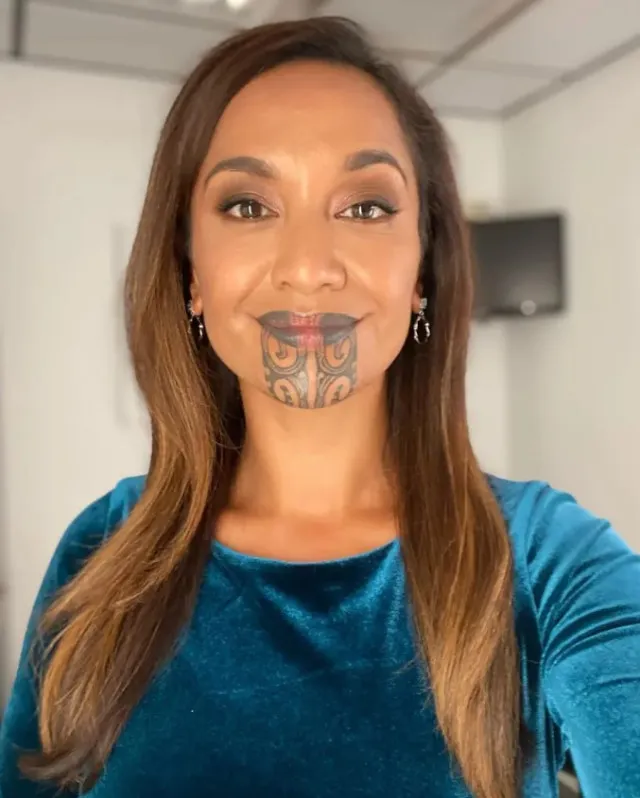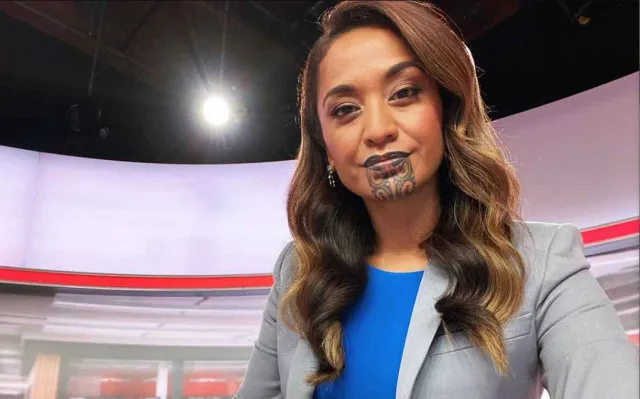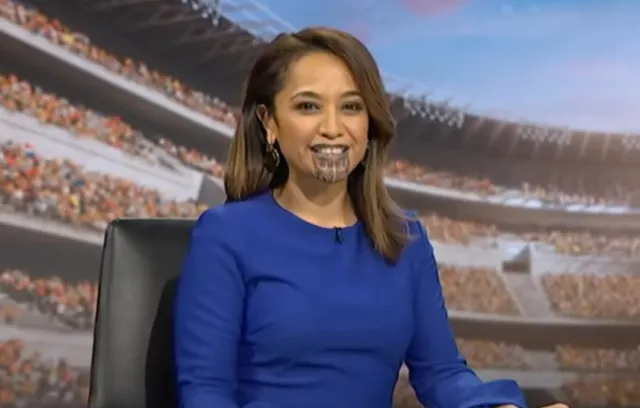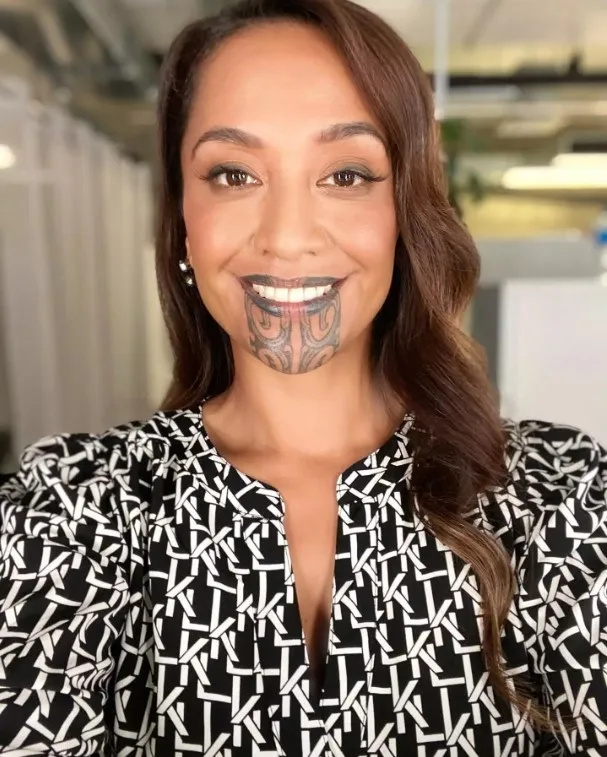TV presenter Oriini Kaipara has responded to criticism of her Māori face tattoo, defending its cultural significance and heritage.
Oriini Kaipara, a prominent New Zealand news presenter, recently addressed criticism from a viewer regarding her traditional Māori face tattoo.
The tattoo, known as moko kauae, holds significant cultural meaning for her.
This tattoo, usually worn by women on the chin, holds cultural significance. It represents a deep connection to Māori heritage.

Kaipara became the first moko kauae news host.
In 2021, Kaipara made history by becoming the first person with a moko kauae to host a primetime news program on national television.
Her debut was celebrated for showcasing Māori culture, but not everyone was supportive.
One viewer, identified only as David, repeatedly complained about her appearance.
He branded it as “offensive” and called it a “bad look.”

It is beautiful but also kind of scary lol I suppose that’s the point tho, the second user said.
Beard-looking tattoo, another wrote.
I would never hire somebody with that tattoo on their face, someone said.
What a mess, another commented.
TV presenter responds to criticism of her Māori face tattoo
After receiving numerous complaints, Kaipara decided to take a stand.
She expressed her frustration on social media, emphasizing that her tattoo is an important part of her identity.
“Thank you for all the complaints against me and my ‘moku.’
I do find them very difficult to take seriously given there is no breach of broadcast standards,” she wrote.

“If I may, I’d like to correct you on one thing – it is moko not moku.
A simple, helpful pronunciation guide of ‘Maw-Caw’ will help you articulate the word correctly.
“I gather your complaints stem from a place of preference on how one must look on-screen, according to you.” she added.
Kaipara stated that when she looks in the mirror, she sees not just herself but also her ancestors and future generations.
This connection empowers her and reminds her of her cultural roots.
“When I doubt myself, and I see my reflection in the mirror, I’m not just looking at myself.
“I’m looking at my grandmother and my mother, and my daughters,
and hers to come after me, as well as all the other women, Māori girls out there and it empowers me.”

Support for Kaipara quickly poured in from the public.
Many people took to social media to defend her, praising her for embracing her heritage.
Comments included remarks about the beauty of her tattoo and the importance of honoring cultural traditions.
It’s her culture..shes free to express that..and she’s very pretty, one user supported.
She is gorgeous and it’s part of her culture, the second user commented.
Nothing wrong with representing you’re heritage, the third user said.
She is stunning and representing her culture. Good for her, another wrote.
I think her tattoo is beautiful, someone said.
TV presenter Kaipara clarifies her Māori face tattoo
In her response to the viewer’s complaints, Kaipara clarified the terminology, correcting the mislabeling of her tattoo as a “moku” instead of moko.
She explained the significance of moko and highlighted that these tattoos are ancient cultural symbols unique to the Māori people.
Kaipara added: “We still haven’t addressed a lot of intergenerational traumas and colonization and for Māori, that’s very, very pertinent and poignant as well.
“Not much in terms of race relations here has changed in a very long time.”
Kaipara highlighted that her use of the Māori language during broadcasts seeks to promote and reclaim a language impacted by colonization.

She emphasized that this effort is part of preserving and celebrating Māori culture.
“Moko and people with them are not threatening nor do they deserve such discrimination, harassment, and prejudice.
Moko are ancient cultural markings unique to the indigenous people of Aotearoa, myself included.
We mean no harm or ill intent nor do we/I deserve to be treated with such disregard.”
“Please refrain from complaining further, and refrain your cultural ignorance and bias for another lifetime, preferably in the 1800s,” Kaipara said.